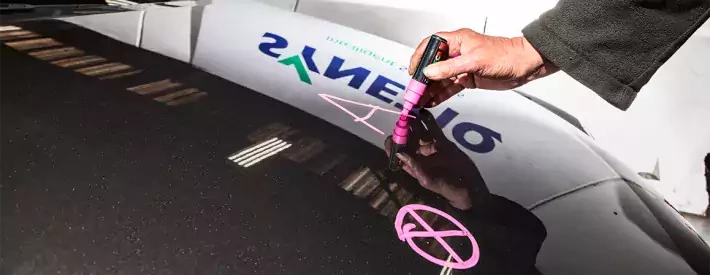How repairs are going green

Reducing the industry’s environmental impact isn’t just about shifting to electric, it’s about maintaining vehicles more economically too
The automotive industry is going through huge shifts as it moves to an electric future and tries to reduce its impact on the environment. But it isn’t just about swapping combustion engines for electric motors.
The entire chain needs to look at how it impacts the environment, and that includes the repair sector.
Companies are making changes. Salvage and vehicle recycling company Synetiq, and insurance firm Allianz have launched a digital platform that will help boost vehicle repairers’ ability to source green parts, reducing their – and the vehicles they fix – impact on the environment.
The mygreenparts platform has been developed to simplify the purchasing process for repairers, saving both time and money, and helping deliver a more sustainable future for body and mechanical repairs.
Cheaper, faster, greener
Allowing repairers to use their existing software system to generate an estimate for a vehicle repair, mygreenparts automatically notifies Synetiq’s stock control system of the parts required – within the guidelines agreed with Allianz.
Synetiq only supplies non-safety critical green parts, such as doors, body panels and headlamps. Parts have been graded, cleaned, safety checked and come with a declaration certificate of parts conformity, BS 10125.
Significantly cheaper and more environmentally friendly, green parts contain less embedded carbon and cost up to 75% less than their newly manufactured equivalent. The firm dismantles category B vehicles for Allianz and ensures they are processed responsibly, with component inspection and full traceability.
Platforms like mygreenparts could become increasingly important to the repair sector giving businesses the ability to measure and report the emissions and carbon savings they achieve through a more climate conscious approach. And as more firms begin to use these types of platforms the captured data can be used to identify trends and enhance fulfilment rates, and ultimately increase the proportion of green parts used in vehicle repairs.
Keeping the roads safe
In the Synetiq and Allianz approach all Category B vehicles are dismantled on site, rather than being re-sold to third parties – a fundamental stipulation for Allianz, and helping maintain compliance.
By guaranteeing that unsafe vehicles are permanently removed from the roads, and not sold for reuse in other markets, the venture between the two firms demonstrates a shared approach to sustainable and ethical salvage, which isn’t focused on revenue generation.
Tom Rumboll, CEO of Synetiq said: “We’re able to handle the complete process of vehicle salvage and dismantling from start to finish. It’s a great step forward in our common goal of automated and sustainable motoring solutions.”
Platforms such as Synetiq’s mygreenfleet system will help firms make CO2 savings and in turn reduce the automotive’s overall carbon emissions. Becoming more environmentally conscious isn’t just about moving to electrified vehicles, but making sure the whole industry is working to the same goal.




